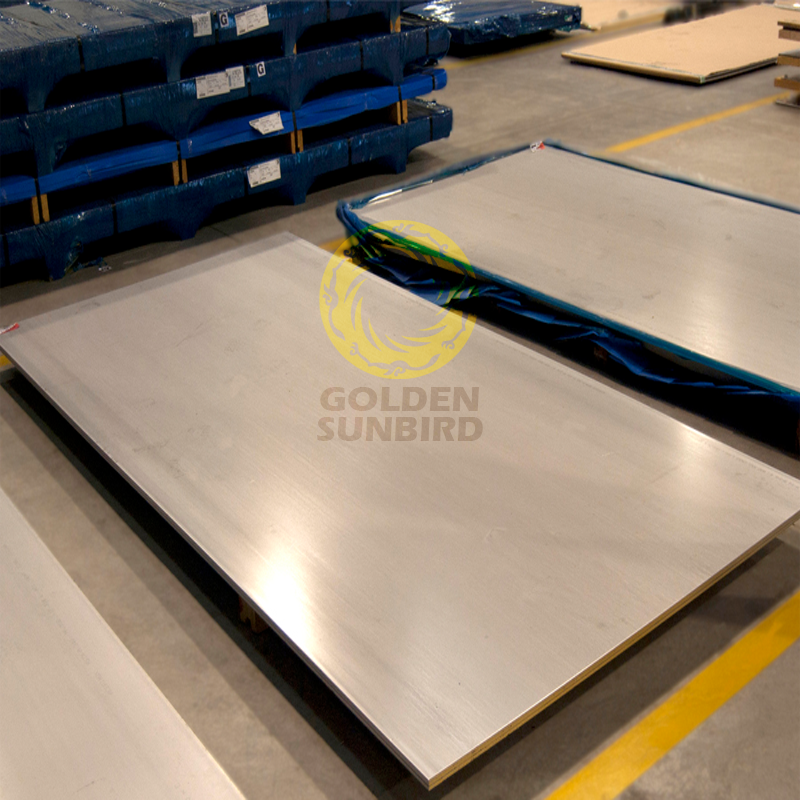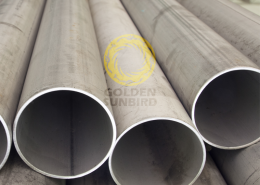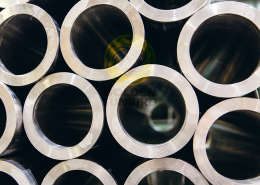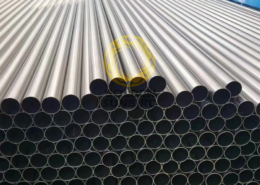ASTM B162 UNS N02200, N02201 Nickel Plate and Sheet
Grade: UNS N02200 (Nickel 200), UNS N02201 (Nickel 201)
Features
ASTM B162 Nickel Plate, Sheet, and Strip for UNS N02200 and UNS N02201
Chemical Composition (wt.%)
| Element | UNS N02200 | UNS N02201 |
|---|---|---|
| Nickel (Ni) | min 99.0 | min 99.0 |
| Copper (Cu) | max 0.25 | max 0.25 |
| Iron (Fe) | max 0.40 | max 0.40 |
| Manganese (Mn) | max 0.35 | max 0.35 |
| Carbon (C) | max 0.15 | max 0.02 |
| Silicon (Si) | max 0.35 | max 0.35 |
| Sulfur (S) | max 0.01 | max 0.01 |
Mechanical Properties
| Condition (Temper) | Material Type | Tensile Strength (min, psi) | Yield Strength (0.2% offset, min, psi) | Elongation (min, %) | Rockwell Hardness (B Scale) |
| Hot-Rolled Plate | |||||
| Annealed | UNS N02200 | 55,000 | 15,000 | 40 | – |
| As-rolled | UNS N02200 | 55,000 | 20,000 | 30 | – |
| Annealed | UNS N02201 | 50,000 | 12,000 | 40 | – |
| As-rolled | UNS N02201 | 50,000 | 12,000 | 30 | – |
| Cold-Rolled Sheet/Strip | |||||
| Annealed | UNS N02200 | 55,000 | 15,000 | 40 | – |
| Quarter-hard | UNS N02200 | – | – | – | 70-80 |
| Half-hard | UNS N02200 | – | – | – | 79-86 |
| Three-quarter-hard | UNS N02200 | – | – | – | 85-91 |
| Hard | UNS N02200 | 90,000 | 70,000 | 2 | – |
| Spring temper | UNS N02200 | – | – | – | 95 min |
| Annealed | UNS N02201 | 50,000 | 12,000 | 40 | – |
| Quarter-hard | UNS N02201 | – | – | – | 70-80 |
| Half-hard | UNS N02201 | – | – | – | 79-86 |
| Three-quarter-hard | UNS N02201 | – | – | – | 85-91 |
| Hard | UNS N02201 | 90,000 | 70,000 | 2 | – |
| Spring temper | UNS N02201 | – | – | – | 95 min |
Technical Specifications
| Specification | Value |
| Standard | ASTM B162/ ASME SB162, DIN 17750, ISO 6208, BS 3072-3073 (NA12), SAE AMS 5553 |
| Grade | UNS N02200 (Nickel 200), UNS N02201 (Nickel 201) |
| Type | Plate, Sheet, Strip |
| Thickness | 1-50mm |
| Length | 1000 – 12000mm |
| Width | 500 – 2500mm |
| Inspection Certificate | EN 10204 Type 3.1 (Mill Test Certificate), EN 10204 Type 3.2 (Witness Testing or 3rd Party Inspection) |
| Tests | Bend Test (ASTM E290), Impact Test (ASTM E23), Intergranular Corrosion Test (Various ASTM Standards), Specific Corrosion Testing |
Packing
They are packed on plywood pallets or in plywood boxes according to the customer’s requirements.
Application
Handling caustic solutions: Nickel’s resistance to alkalis makes it ideal for equipment and piping systems handling caustic chemical solutions, such as sodium hydroxide and potassium hydroxide.
Food processing equipment: Nickel’s corrosion resistance and ease of cleaning make it suitable for food processing equipment.
Chemical tanks and vessels: Nickel’s corrosion resistance and strength make it suitable for constructing chemical storage tanks and processing vessels.
Battery components: Nickel is used in various battery technologies, including nickel-cadmium (NiCd) and nickel-metal hydride (NiMH) batteries.
Electrical contacts and connectors: Nickel’s good electrical conductivity and corrosion resistance make it suitable for electrical contacts and connectors.
Electronic components: Nickel is used in various electronic components, such as resistors, capacitors, and integrated circuits.
Aerospace and marine industries: Nickel alloys are used in aerospace and marine applications, requiring high strength, corrosion resistance, and heat resistance.
Architectural and decorative applications: Nickel’s attractive appearance and corrosion resistance make it suitable for architectural and decorative applications.
Coinage: Nickel is commonly used in coinage alloys for its durability and corrosion resistance.
Specific Forms and Applications
Plate: Thicker forms of nickel are used for structural components, pressure vessels, and heavy-duty applications.
Sheet: Thinner forms of nickel are used for various applications, including chemical processing equipment, battery components, and electrical contacts.
Strip: Narrower forms of nickel are often used for stamping, forming, and producing electronic components.








